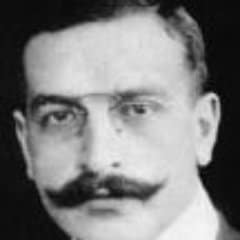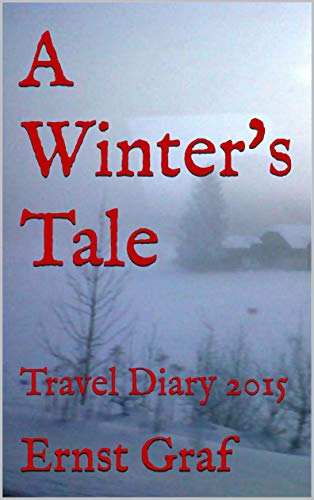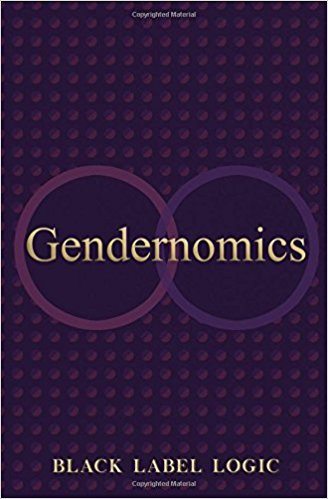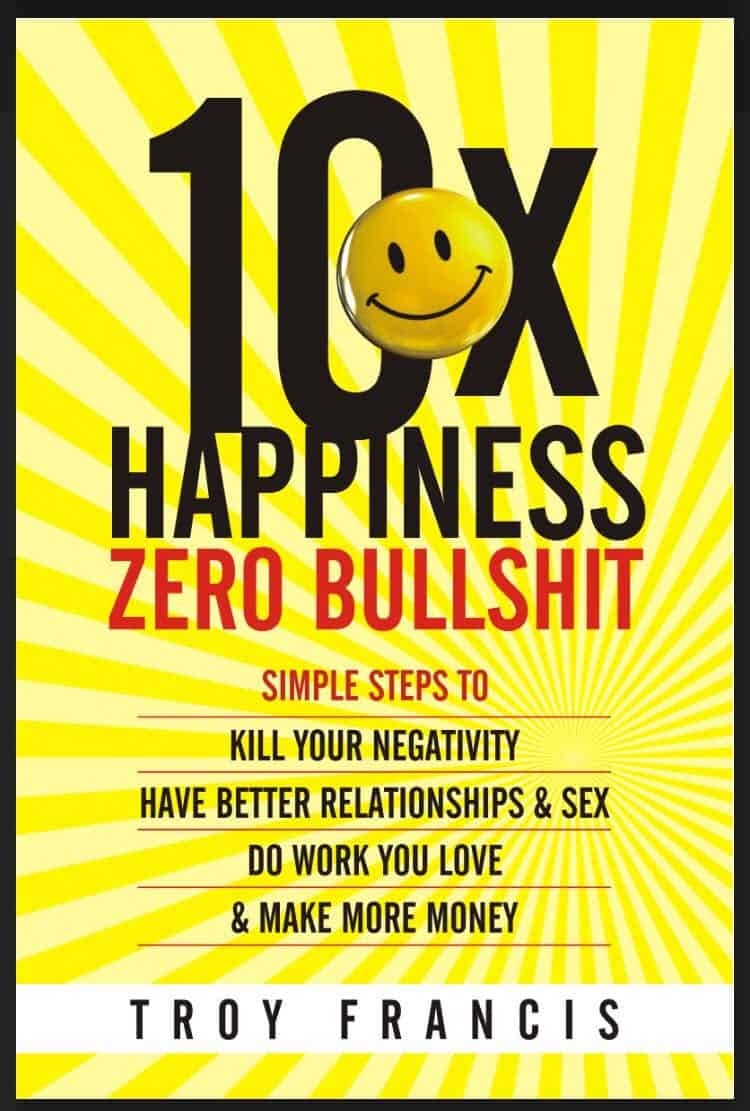No man is an island. Well I’m as close to it as I’ve ever met. There may be other people like me but by definition I am not likely to bump into them.
Ernst Graf
As anyone who follows me over on Twitter will be more than aware, I am a fan of the writer and diarist Ersnt Graf. Hardly a day goes by when I don’t retweet some choice morsel of his prose for others to enjoy.
(Some will recall that I interviewed here in 2017).
Perhaps some people following me get fed up with this. Maybe they’re asking themselves, why the hell does Troy—who is a ‘game’ guy—quote this man who bangs on about strippers, hookers and Kasper Hauser (who he?) the whole time?
But the fact is that Graf is one of the finest writers working today, and his work, informed by his travels to the ‘four stations of the cross’—Berlin, Vienna, Brussels and Munich, and the strip clubs, porn cinemas and brothels there—gets right to the heart of modern masculinity with a directness that no one else dares emulate.
Critical Probing

It was heartening, recently, to see Graf finally getting some mainstream critical attention from Jad Adams, author of Madder Music, Stronger Wine: The Life of Ernest Dowson, Poet and Decadent, the book that first introduced Graf to Dowson and ignited his long fascination for him.
Adams’ admiration for Graf is palpable and deserved. Calling him ‘Knut Hamsun with a hard-on’, Adam’s rightly characterises Graf as a highly literary writer, observing that his Journals 1 (A Soho Golden Age) references ‘Frank Wedekind, Oscar Wilde, Sarah Kane, Henry Miller, Emile Zola and others along with artists Egon Schiele and George Grosz.’
Of course, Ernest Dowson’s association with the decadent movement of the late 19th century is key here, since Graf is himself a product of the decadent imagination, inspired not only by Dowson, but also Baudelaire and others.
On Dowson’s death Oscar Wilde said “Poor wounded wonderful fellow that he was, a tragic reproduction of all tragic poetry, like a symbol, or a scene. I hope bay leaves will be laid on his tomb and rue and myrtle too for he knew what love was”.
Well, Ernst Graf knows what love is too—even though his instinct (or the instinct of his literary alter ego) is to run from it.
Ernst Graf isn’t his real name. That was the name of the German gynaecologist who discovered the female G spot. Who knows what his real name is? In fact, who knows anything very much at all about the figure behind these books—other than what the texts themselves reveal. And who knows how much of that is fictionalised.
As Jad Adams notes, ‘he lives somewhere, near but not in London, he has a job but we don’t know what it is, he has had a girlfriend, he comments on having been bullied….then I stopped playing detective and let the flow take me. ‘
And that is essential—letting the flow of Graf’s prose take you. The identity of the author is of no importance in comparison with what is on the page, and our appreciation of literary texts should not be sullied by the minutiae of biographical data.Many times over the years I have reached out to Graf, asking if we could possibly meet. Many times he has politely but robustly declined.
It is probably for the best.
Floozies
To refine things down to their essence, I go on holiday because of my penis.
A Winter’s Tale, like all of Graf’s books to date, is a travel diary detailing his excursions to Brussels, Munich and Berlin in 2015. As usual, there isn’t anything so vulgar as plot to interrupt the proceedings. As Adam’s observes, Graf is a product of the modernists, and his writing has the same stream-of-conscious quality as Hamsun, and before that Eliot, Joyce and even Proust.
What we get instead of a cracking yarn is Graf’s musings as he takes trains around Europe (rarely planes), checks into his favourite hotels, gets drunk and hits the red-light districts, looking at strippers and hookers but rarely doing anything with them.
What separates A Winter’s Tale from the previous books is that it is less sexually frenzied and more reflective. Put simply, the author is getting older and he no longer has the same drive to lose himself in eros. But still, he is drawn back to the same old places, like a heroin addict shooting up water in a vain effort to reach the old highs.
Somewhere Michel Houellebecq (himself a fan of the decadents) writes about the nostalgia that middle-aged men feel not just for the experience of sex with young women, but for the desire that itself motivated that sex. We feel something of the same longing here.
Sitting in the nightbars surrounded by floozies no longer makes me happy. They all say to me “You seem upset; what is wrong?” but my addiction makes me keep going, though I get no pleasure out of it. Wasting my time and theirs.
Graf is addicted to the nightscene–to the bars, to the strip clubs with their plastic Balkan music and gaudy neons, and to the brothels, even as his desire to interact sexually in these places recedes. Later he writes:
This is why I travel. In a nutshell I travel to drink, and to eat, and to watch some pornography on a big screen and some scantily-clad floozies in a night bar—but just watch them, mind, rarely anything more than that. The planets and stars have to be in a rare alignment for me to feel any desire to do anything
The reason for this, we are told, is that Graf simply feels happier surrounded by prostitutes–in a way, he has become ‘institutionalised’ by the sex industry. He has haunted it for so long that he is unable to break away:
I only feel comfortable when surrounded by whores. 999 times out of a thousand I never do anything with them, but how happy I feel to be surrounded by them if I need them. God bless these women.
It says something about me that I come to a brothel and am more interested in the pictures on the wall. I seem to be becoming increasingly averse to real life women.
Many would consider this a regrettable state of affairs, recommending that Graf seek therapy for whatever psychological issues have led him here. But far from being the root of Graf’s problems, the sex clubs of Europe have been his salvation—the very thing that enabled his self-actualisation:
It was only in the strip clubs and brothels of Europe that I really learnt to cope with life and discovered some comfort and calmness.
How to account for this? Simply because the sex clubs are renegade spaces inhabited by outsiders (both the girls and the punters) and as such are places where outsiders can fit in:
What is this addiction of mine to strip clubs & brothels? I think it’s because it is an outsider’s world, and it was the first time in my life I ever found a place where I felt comfortable.
What we detect here is a strange tension between the narrator’s pervasive desire to visit places which, while still fascinating to him, no longer give him the ‘hit’ he once enjoyed. Like some priapic, Marc Dorcel version of the Ghost of Christmas Past, he is condemned to keep revisiting the life of his former self.
Sordid
But what else is there? Graf is not one for settling down with a pipe and slippers, a wife and a brood of noisy kids:
As I get older I do not “improve” i.e. become more mature, more of a “family man”. On the contrary I become purer me. That means MORE scopophiliac, MORE priapic, MORE provocative. As I get older all that happens is I become less & less ashamed of my tastes and behaviour and indulge them more purely than ever.
I simply cannot understand women who want children, and men who want children. I simply have a completely different mindset to them. Why on Earth would you want to destroy your freedom by having children? I still feel I want to be free to sow my “wild oats”. I cannot imagine a time when I DON’T want to sow my “wild oats”.
So there is no escaping his ‘four stations of the cross’, and we sense that Graf is both sad and unrepentant about it simultaneously.
‘Yes, I know it is all futile’, his work says. ‘But I will keep doing it anyway. I will keep travelling to these sordid places just to spite you. Just to spite me.’
Honest
One of the reasons I like Graf’s writing so much, and why I quote him so frequently, is that he is more honest about male sexuality than pretty much anyone else with a public profile I can think of.
As I have said on Twitter, the playboy (or the libertine, a description which suits Graf better) is pilloried from all sides. The feminists hate him, of course (well, who don’t they hate?)
But the hypocritical puritans on the right hate him too, since he rejects their prescription for a ‘good life’—family, clean living and religion.
Instead, Graf finds his own form of religion in sin cities (‘For me Berlin is some kind of Holy City. For some people Jerusalem is a holy city, or Mecca; for me Berlin is a holy city’). And thus the libertine is hated for his honesty, and for his refusal not to live life on his own terms. Such is the fate of all those who don’t follow the herd, as Graf is all too keenly aware. However, resilience and a lack of confidence in his greatness are not among his shortcomings:
I do have a belief that I am creating a body of work that will one day come to mean something, like the writings of Samuel Pepys. It may not have value now, but like Coal and Diamonds and Oil, it needs Time to bring value to it. This sense of my own specialness was always my best and last defence against depression that dominated most of my life, and eventually the defeater and vanquisher of that depression. My sense of greatness DEFEATED my black depressions; AND my bitter, pathetic little enemies. They had no idea who they had taken on; no idea they had bitten off more than they could chew. I almost felt sorry for them. Their resources were so much less than mine; their “hinterland” was non-existent. The secret source of my Nile was always a bewildering mystery to them. This is how great people always triumph over the small people.
And that, ultimately is the point. Graf’s writing—the output derived from all of this activity—is what makes all the pain and tedium and regret and disillusionment and momentary joy quickly extinguished worth it. Yes, Graf may be a ‘pervert’ (he uses the term himself at one point), but far more importantly he is a writer.
He is also an artist of the old-fashioned variety who is prepared to suffer for his art. To undergo hardships, to ‘pass through Orphée’s watery black mirror’ and emerge with a document, a text that communicates just a little of what it is to be a human being with a pulse and a penis living on this crazy planet in the early 21st century.
I have uploaded three of my first four books on to Amazon so they are at least preserved for posterity. And after that, I just keep on adding to them. I really don’t want for anything else now—just the freedom to travel, repeatedly, back to the same places. For that oblivion, that suspension, that transcendence.
And so Graf is stuck in Nietzsche’s ‘perpetual recurrence’, revisiting those same haunts time and again to inject that magic spark into his writing in order to pass transcendence onto us, his readers.
Toothless Bulgarian Fatties
I am very aware that not everyone reading this will share Graf’s enthusiasm for paid-for sex in dark porn cinemas with toothless Bulgarian fatties (as I once cheekily remarked). But that’s not really the point. What makes Graf’s writing so important is the way that he captures the addictive and obsessive nature of sexual hunger and satiation that all men will recognise, regardless of their predilections.
If you have already read Graf then I would highly recommend A Winter’s Tale, which you can purchase here.
If you are new to his work then you might be as well to start with the first volume of his Journals, available here.
Either way, if you’re not reading him now then you should be. Aside from the meditations of sexuality, loneliness and existentialism, Graf is also a sharp culinary critic, as this brief restaurant review attests:
The salad was mixed but dry; in the Café West End it comes soaked in delicious olive oil I think. But its main effect was just to make me want to sleep. I tried to have one more beer in the hotel, then to Ciné Paris for Tropical Anal.
To find out more about Ernst Graf, go to his website
Read more about modern relationships here.
Buy all 8 of my dating books in a bundle for $35 here.






